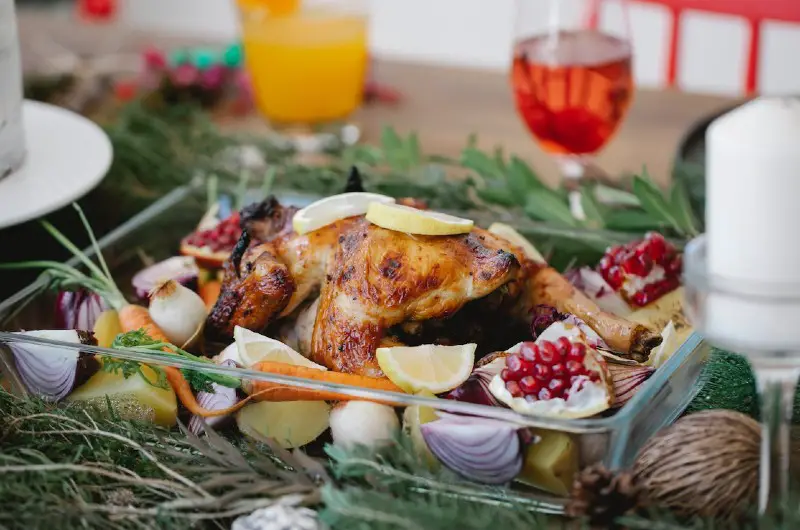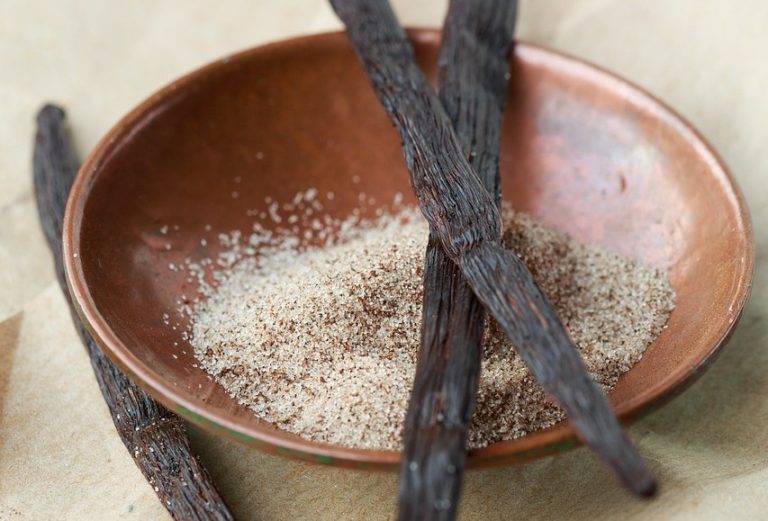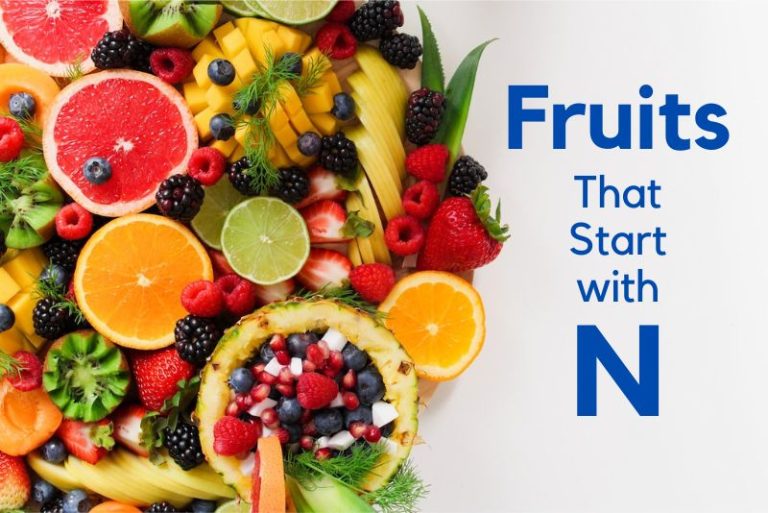What Does Quail Taste Like?
Quick Answer
Quail meat is tender, juicy, and somewhat similar to chicken, although it is generally considered to be more flavorful and succulent. The taste is sometimes described as a cross between chicken and turkey. But it has its own distinct, somewhat gamey flavor that is milder than other game birds like duck or pheasant. Quail meat is lean and low in fat, making it relatively easy to cook.
What is Quail?
Quail are small, ground-nesting birds that belong to the Phasianidae family, which also includes pheasants and partridges. They are known for their distinctive appearance, usually featuring speckled or mottled plumage.
Quail are commonly found in various parts of the world, including North America, Europe, Asia, and Africa.
They are often hunted for sport and their meat and eggs are considered delicacies in many cuisines.
Quail eggs are also considered a delicacy. They have a very similar flavor to chicken eggs but are much smaller in size. Some people think they have a slightly richer flavor due to a higher yolk-to-white ratio.
What Does Quail Taste Like?
When it comes to describing the taste of quail, many people often draw comparisons with chicken and turkey. While it’s true that quail shares some similarities with these more commonly consumed poultry, it boasts a flavor profile that sets it apart as a delicacy.
Comparison with Chicken and Turkey
Quail meat is often described as more flavorful and succulent than chicken. It has a mildly gamey undertone, which provides an extra layer of complexity not commonly found in supermarket chicken. Turkey, another poultry that is frequently compared to quail, is usually leaner and has a more neutral, sometimes drier, texture. In contrast, quail offers a juicy, tender mouthfeel that holds a richer flavor, due in part to its higher fat content relative to its size.
Texture and Flavor
The meat of the quail is fine-grained and tender, a characteristic that makes it highly desirable in fine dining settings. It’s a lean meat but has enough fat to keep it juicy, especially when cooked with care. Because quail is smaller and leaner, it tends to cook faster, making it easier to retain its natural juices and flavors during the cooking process.
Factors Influencing the Taste of Quail
Understanding what influences the taste of quail can enhance your culinary experience with this delectable bird. Just as the terroir affects the flavor of wine, factors like age, diet, and whether the quail is wild or farm-raised can impact its taste.
Age and Diet of the Bird
The age of a quail can significantly affect its flavor and texture. Younger birds tend to be more tender and less gamey, offering a subtler flavor that is often preferred in delicate dishes. Older birds, on the other hand, generally have a stronger, more robust taste that stands up well to heartier preparations like stews or braises.
Diet is another crucial factor. Quail that have fed on a natural diet of seeds, grains, and insects usually have a more complex, earthier flavor. In contrast, farm-raised quail are often given a more controlled diet, which can result in a milder, less gamey taste.
Wild vs. Farm-Raised Quail
The environment in which a quail is raised plays a significant role in determining its taste profile. Wild quail are often considered superior in terms of flavor complexity. They roam freely, foraging on a variety of natural foods, which contributes to a richer, more gamey flavor. Their meat may also be leaner and darker due to their active lifestyle.
Farm-raised quail, meanwhile, are generally more consistent in flavor and tend to be less gamey. Because they are raised in a controlled environment with a standardized diet, their meat is usually milder and their texture more tender. This can be advantageous for those who are trying quail for the first time or prefer a less intense game flavor.
Cooking Methods and Their Effects on Taste
The way you cook quail can dramatically alter its flavor profile, texture, and overall appeal. From grilling and roasting to smoking, each method brings out different qualities in the bird, offering a range of gastronomic experiences. Additionally, the use of marinades, rubs, and spices can further customize the flavor to suit your palate or the occasion.
Grilling
Grilling quail is a quick and effective way to lock in its natural juices, leading to a tender, moist interior and a flavorful, slightly crispy exterior. The high heat also caramelizes any marinade or rub applied to the bird, enhancing its overall taste.
However, quail’s small size and lean meat make it susceptible to overcooking, so keep an eye on the grill to prevent it from drying out.
Roasting
Roasting is an excellent method for those who prefer a more controlled cooking environment. This technique allows for even cooking and is suitable for a range of additional flavors like herbs, fruits, or aromatics stuffed into the cavity.
Roasted quail is generally juicy and tender with a more subtle, less smoky flavor compared to grilling. It’s an ideal choice for special occasions or more complex recipes.
Smoking
Smoking quail provides a deep, complex flavor profile that complements the bird’s natural gamey notes. This low-and-slow cooking method infuses the meat with the characteristics of the wood used, be it hickory, applewood, or mesquite.
However, smoking quail requires careful attention to ensure it remains moist and flavorful throughout the cooking process, as it can easily dry out over extended periods.
Influence of Marinades, Rubs, and Spices
The choice of marinade, rub, or spice blend can dramatically impact the final flavor of your quail dish.
A citrusy marinade with lemon and herbs can brighten the bird’s natural flavors, while a spicy rub with paprika and garlic can add a zesty kick.
From Asian-inspired glazes featuring soy sauce and ginger to Mediterranean mixes of olive oil and rosemary, the possibilities are nearly endless.
FAQs
What is The Best Quail for Meat?
When it comes to choosing the best type of quail for meat, several factors come into play, including taste, texture, and ease of rearing if you’re considering raising your own birds. Here are some popular quail breeds commonly raised for meat:
Coturnix Quail (Japanese Quail)
- Pros: Coturnix quail are the most popular for meat production because they grow quickly, reaching a suitable butcher weight of around 8-10 ounces in just 6-8 weeks. They are also less aggressive than other breeds, making them easier to manage.
- Cons: Their small size means you may need to prepare more birds for a meal.
Bobwhite Quail
- Pros: These are native to the United States and have a robust, gamey flavor. They can grow to weigh between 6-7 ounces.
- Cons: They grow more slowly than Coturnix quail, taking about 16 weeks to reach butcher weight, and require more space.
King Quail (Button Quail)
- Pros: These are the smallest commonly domesticated quail and are sometimes raised for meat. They are also relatively easy to keep.
- Cons: Due to their small size, they offer very little meat, making them less practical for this purpose.
Jumbo Coturnix Quail
- Pros: A larger strain of the Coturnix, these quail can reach up to 14 ounces in weight and still have a relatively quick growth rate.
- Cons: They require more feed than regular Coturnix quail, which could be a consideration for those raising their own birds.
Texas A&M White Coturnix
- Pros: This is a selectively bred, all-white variety developed at Texas A&M University. It was specifically designed for meat production and has a clean, mild flavor.
- Cons: As with other Coturnix types, its small size means you’ll need more birds for a substantial meal.
What Tastes Similar to Quail?
If you’re looking for meats that have a similar taste profile to quail, several options come close in flavor and texture:
- Chicken: Often the first comparison, chicken has a milder flavor and can be somewhat similar in texture, especially when comparing the dark meat. However, chicken lacks the gamey undertones that quail has.
- Cornish Hen: These small birds are more tender and succulent than your average chicken and are often considered a halfway point between chicken and game birds like quail.
- Pheasant: A game bird that has a more pronounced gamey flavor than quail. It’s leaner but shares a similar kind of earthiness.
- Partridge: Another small game bird, partridge has a delicate, sweet, and moist flesh that is comparable to quail.
- Dove/Pigeon: These birds offer a rich, dark meat that is tender and succulent, somewhat like quail. They are often enjoyed in similar preparations, such as grilling or roasting.
- Turkey: Particularly the dark meat, which tends to be juicier and more flavorful than the breast meat, has some similarity to quail, although it lacks the gamey notes.
- Duck: While richer and fattier, duck meat has gamey notes that may appeal to those who enjoy quail. Duck breast, in particular, can be similar in its richness and complexity.
- Rabbit: While not a bird, rabbit meat is often described as lean and slightly gamey, making it a reasonable alternative for those who enjoy the taste of quail.
- Guinea Fowl: Another game bird that is leaner and has a flavor profile falling somewhere between chicken and turkey, but with a gamey kick that is closer to quail.
Is Quail Meat Tough Or Tender?
Quail meat is generally tender and fine-grained, especially when cooked properly. However, like any meat, it can become tough if overcooked.
How Does The Taste Of Wild Quail Compare To Farm-Raised Quail?
Wild quail often has a more robust, gamey flavor due to its natural diet and environment. Farm-raised quail, on the other hand, tends to have a milder and more consistent flavor.
Do Quail Eggs Taste Different From Chicken Eggs?
Quail eggs have a similar flavor to chicken eggs but are often described as richer due to their higher yolk-to-white ratio. They are also much smaller in size.
What Cooking Methods Are Best For Quail?
Grilling, roasting, and smoking are popular cooking methods for quail. Each method brings out different aspects of its flavor and texture.
How Does The Age Of The Quail Affect Its Taste?
Younger quails tend to be more tender and have a subtler flavor, while older birds can have a stronger, more robust taste.
Can I Use The Same Marinades And Rubs That I Use For Chicken Or Turkey?
Yes, quail’s versatile flavor profile makes it compatible with a variety of marinades, rubs, and spices. However, you may want to adjust the seasoning to highlight quail’s unique flavor.
What Are Some Good Side Dishes To Serve With Quail?
Quail pairs well with a variety of side dishes, such as roasted vegetables, rice pilaf, or simple salads. The choice often depends on the preparation method and seasoning of the quail.
Is Quail Meat Healthy?
Quail meat is lean and low in fat, making it a healthy option. It is also a good source of important nutrients like protein, B vitamins, and minerals such as iron.
How Do I Know When Quail Is Cooked Properly?
Quail is properly cooked when its internal temperature reaches 165°F (74°C). Overcooking can result in dry, tough meat, so it’s important to monitor the cooking process closely.
Can Quail Make you Sick?
Like any other type of poultry, quail can pose a risk of foodborne illness if it’s not properly handled, stored, or cooked.
To mitigate this risk, it’s essential to cook quail to an internal temperature of 165°F (74°C) and to practice good kitchen hygiene to prevent cross-contamination with other foods.
Fresh quail should be refrigerated and consumed within a day or two or else frozen for later use. If you’re dealing with wild quail, there might be additional concerns such as parasites, so extra caution is advised.
Always buy from reputable sources to ensure the quail has been properly raised and processed.
By following these guidelines, you can significantly reduce the risk of getting sick from eating quail.



